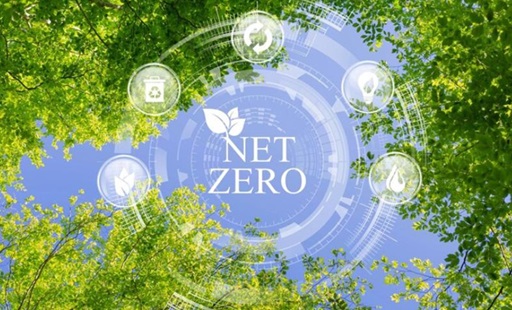Prelims Exam: Current Affairs of National & International Importance
Mains Exam: General Studies Paper- 2 & 3: (Important International Institutions, Bodies and Forums- their structure, mandate, infrastructure: power, ports, roads, airports, railways etc., conservation, environmental pollution and degradation, environmental impact assessment) |

Reference
The International Maritime Organisation (IMO) has approved a draft Net-Zero Framework to reduce greenhouse gas (GHG) emissions from the global shipping industry.
About Net-Zero Framework
- The new Net-Zero Framework approved by the IMO is the first legal framework that mandates greenhouse emission limits and GHG pricing for the shipping industry.
- It is the first framework that integrates mandatory emission limits and GHG pricing across the entire industry sector.
- This new framework is designed to control greenhouse gas emissions in the shipping industry under MARPOL Annex VI.
- Marine Pollution Annex VI is part of an international treaty to control air pollution at sea established by the International Maritime Organization (IMO).
- MARPOL stands for International Convention for the Prevention of Pollution from Ships.It aims to control various pollution sources associated with ships to prevent pollution at sea.
- Applicable: By 2027
Key features of the framework
- Global Fuel Standard: Under this new framework, ships will be forced to reduce their greenhouse gas fuel intensity (GFI) over time.
- GFI means how much GHG is emitted per energy unit. This standard will motivate the shipping industry to increase energy efficiency and reduce emissions.
- Global Economic Measure: Ships emitting more than the GFI limit will have to arrange for preventive units to balance their emission excess (deficit).Ships using zero or minimum GHG technologies will get economic rewards.
- Net-Zero Fund (IMO Net-Zero Fund): Under this, a new net-zero fund will be established, which will collect the revenue obtained from emission pricing.The fund will be used to:
- Reward low-emission vessels
- Support innovation, research and infrastructure in developing countries
- Undertake training programmes for technology transfer and capacity building
- Protect developing countries and small island nations from negative impacts
- Ensuring Compliance: Vessels must comply with the GHG GFI at two levels: a base target and a direct compliance target.
- Vessels that emit more than the prescribed limit can transfer surplus units or receive preventive units to balance their emission deficit.
Benefits of the Framework
- Reduction in greenhouse gas emissions
- Promotion of zero emission technologies
- Promotion of innovation and research
- Common standards in the global shipping industry
- Sustainable development and protection of the marine environment
- Protection of marine ecosystems
- Development of sustainable shipping technologies
Conclusion:-
IMO's Net-Zero Framework is an important step to control emissions in the shipping industry and reduce the effects of climate change.Through this, the shipping industry will be inspired on the path of energy efficiency, innovation and sustainable development, which will help in protecting the global environment.This framework will prove beneficial not only for the shipping industry but for the entire world.
International Maritime Organization
- Introduction:- As a specialized agency of the United Nations, IMO is the global standard-setting authority for the safety, security and environmental performance of international shipping.
- Establishment: It was established in 1948 as Inter-Governmental Maritime Consultative Organization (IMCO) at an international conference in Geneva.
- In 1982, its name was changed to International Maritime Organization (IMO).
- Main objectives:
- To provide a mechanism for cooperation between governments in the field of government regulation and practices relating to all kinds of technical matters affecting ships engaged in international trade.
- To encourage and facilitate the common adoption of the highest practicable standards in matters relating to maritime safety, efficiency of navigation and prevention and control of marine pollution from ships.



